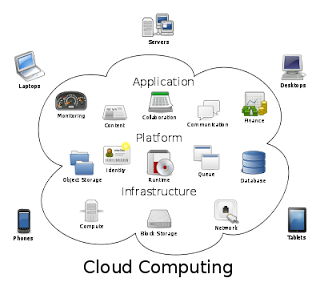Here's a great post on the advantages of social over traditional media from
Hubspot via marketing guru
Simon Mainwaring.
Social media is the hub around which the
Music 3.0 wheel turns, and the following provides some reason why.
As traditional and social media duke it out for the leadership role in commanding consumer attention, it’s worthwhile to highlight some of the undeniable benefits of social media. Here are ten that quickly come to mind.
My comments in italics.
1. Cost: There are almost no barriers to entry in creating or distributing social media content. Or put another way, beyond your time and production costs, it’s almost free. (Still need the other nine reasons? OK.) And that single piece of content ricochets around the web indefinitely with no additional expense unlike TV, print or radio.
The cost of time can be significant though, so that must always be kept in mind.
2. lntimacy: Traditional media necessitates broadcasting to thousands or millions of people at once robbing it of the specificity and dialogue that can be achieved through social media.
Fans of any type want a personal interaction with the artist or brand, especially since they see it's now possible - another Music 3.0 fundamental.
3. Targeting: A key advantage of social media is that it can be far more specific in terms of isolating exactly who that brand or product wants to talk to. What’s more, consumers share the load by constantly sourcing information and products of interest and distributing them to others.
Why broadcast to those who have no reason to care about you? Such a waste of time and money.
4. Nimbleness: One of the unique advantages of social media is that it allows brands to adapt to consumers buying and sharing habits almost instantly. Traditional media necessitates sizable (and often prohibitive) investments by corporations who then can’t react as quickly as market requires.
While big media buys will probably never go away, they're far less necessary than ever before thanks to social media.
5. Measurement: Traditional media has to rely on long-term measurement tools to gauge the effectiveness of brand messaging. With social media that measurement can be almost instantaneous as the customers respond to brands and each other across networks, platforms and apps. When that response is negative, a brand has the chance to course-correct quickly minimizing damage to the brand.
As the old advertising saying goes, "50% of advertising works, we just don't know which 50%." The age of that is now over.
6. Newness! Consumer preoccupation with whatever is new is hardly unique to social media. Yet as a function of its ability to constantly evolve in response to consumer demands, social media retains the sheen of “new” re-engaging consumer attention. With traditional media content can change but the format of distribution changes little and slowly.
In marketing, "new" is more about what's current. It's far, far easier to be current ("new") using social media.
7. Exponential: As difficult as it is for a brand or product to thread the viral needle, the potential for exponential growth is almost unlimited and repeatable at a low cost.
The problem here is that you never know exactly what will become viral. Still, at least the prospect of exponential viral growth is always available, while it's possible but pretty unwieldy with traditional media.
8. Participatory: As soon as the barriers to content creation approached zero, consumers quickly stepped into the vacuum and began participating in the commercial dialogue. It’s as if the longstanding presumption of traditional advertising that brands and consumers were in dialogue has finally come true thanks to real-time communication tools.
Once again, true fans, super-fans, "tribe" members crave interaction, especially since they now know it's possible.
9. Proximity: Time and distance have virtually disappeared as a barrier between consumers around the globe. As such, social media has created a global, connected community like never before. That opens up enormous potential for success or failure depending on how well brands understand the new dynamics in play.
We are truly in a global economy, especially if social media is used.
10. Future: Just as advertising dollars have followed consumer eyeballs online, they will shortly follow consumer adoption of mobile community (enabled by smart phones) as the new defining social media dynamic. While new rules of engagement will appear and consumers will increasingly be defined by where they are (hello,
Foursquare), much can be divined about how to prepare for the future from current social media practices.
Social media evolves quickly so you must stay on top of the latest evolutional trend to take advantage.
What other advantages to social media do you see?
-----------------------------------
You should follow me on Twitter for daily news and updates on production and the music business.





